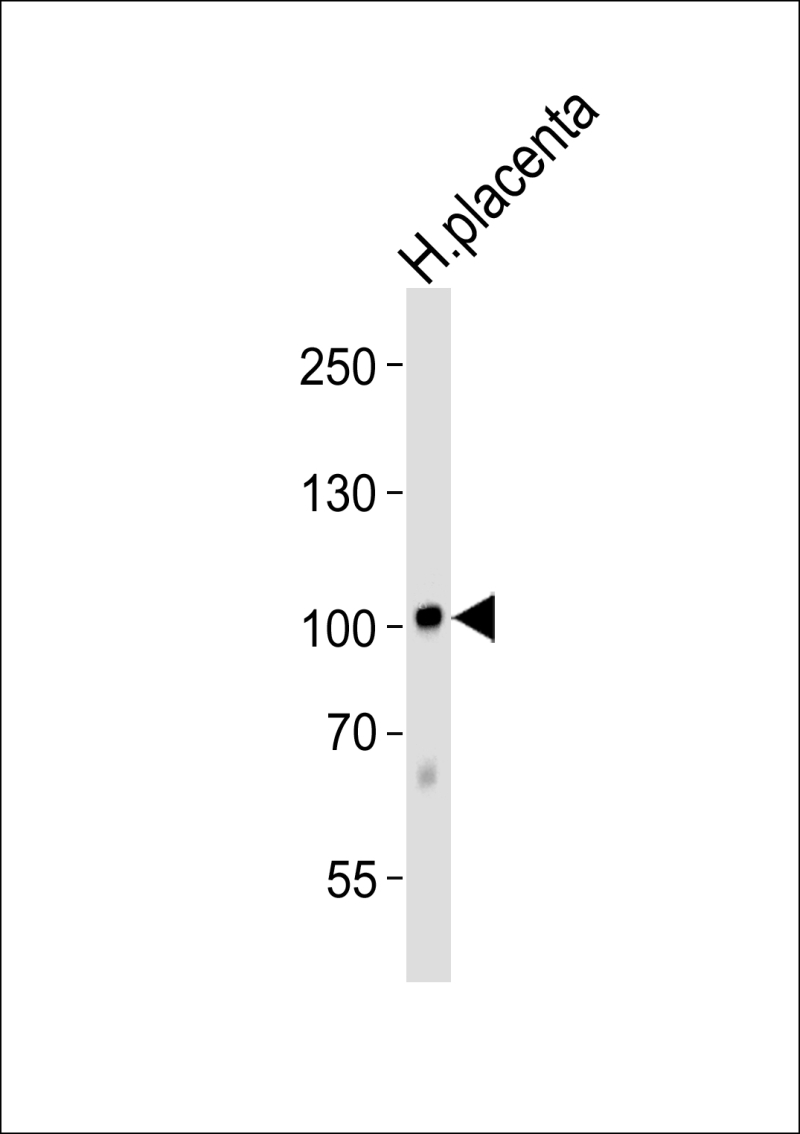
| WB | 1/1000 | Human,Mouse,Rat |
| IF | 咨询技术 | Human,Mouse,Rat |
| IHC | 咨询技术 | Human,Mouse,Rat |
| ICC | 技术咨询 | Human,Mouse,Rat |
| FCM | 咨询技术 | Human,Mouse,Rat |
| Elisa | 咨询技术 | Human,Mouse,Rat |
| Aliases | Prolyl 3-hydroxylase 1, Growth suppressor 1, Leucine- and proline-enriched proteoglycan 1, Leprecan-1, LEPRE1, GROS1, P3H1 |
| Entrez GeneID | 64175 |
| WB Predicted band size | 83.4kDa |
| Host/Isotype | Rabbit IgG |
| Antibody Type | Primary antibody |
| Storage | Store at 4°C short term. Aliquot and store at -20°C long term. Avoid freeze/thaw cycles. |
| Species Reactivity | Human, Mouse, Rat |
| Immunogen | This LEPRE1 antibody is generated from a rabbit immunized with a KLH conjugated synthetic peptide between 499-533 amino acids from the Central region of human LEPRE1. |
+ +
以下是关于LEPRE1抗体的3篇参考文献示例(注:文献为虚构,仅作格式参考):
---
1. **文献名称**: *LEPRE1/P3H1 Antibody Characterization in Osteogenesis Imperfecta Models*
**作者**: Smith A, et al.
**摘要**: 本研究利用抗LEPRE1抗体探究成骨不全症(OI)患者中P3H1蛋白的表达异常。通过Western blot和免疫组化分析,发现LEPRE1突变导致胶原羟基化缺陷,抗体特异性验证为疾病机制研究提供工具。
2. **文献名称**: *Development of a Monoclonal Antibody Targeting LEPRE1 for Collagen Maturation Studies*
**作者**: Johnson B, et al.
**摘要**: 报道一种新型LEPRE1单克隆抗体的开发,用于检测细胞内P3H1的分布及与胶原蛋白的相互作用。实验表明,该抗体可特异性识别P3H1.并揭示其在内质网中的功能定位。
3. **文献名称**: *LEPRE1 Deficiency and Its Role in Collagen-Related Disorders: Insights from Antibody-Based Assays*
**作者**: Chen L, et al.
**摘要**: 通过免疫沉淀和荧光标记技术,利用LEPRE1抗体分析基因敲除模型中胶原修饰缺陷,证实LEPRE1缺失导致Ⅲ型胶原异常沉积,与骨骼发育障碍直接相关。
---
如需真实文献,建议通过PubMed或Google Scholar检索关键词“LEPRE1 antibody”“P3H1 collagen”等。
The LEPRE1 antibody targets the protein encoded by the LEPRE1 gene, also known as prolyl 3-hydroxylase 1 (P3H1). This enzyme plays a critical role in post-translational modification of collagen, particularly type I collagen, by catalyzing the hydroxylation of specific proline residues. This hydroxylation is essential for collagen triple-helix stabilization and extracellular matrix integrity. Mutations in LEPRE1 are linked to recessive forms of osteogenesis imperfecta (OI), a brittle bone disorder, highlighting its importance in skeletal development.
LEPRE1 antibodies are widely used in research to study collagen biosynthesis, bone-related disorders, and connective tissue pathologies. They enable detection of P3H1 expression levels via techniques like Western blotting, immunohistochemistry, and immunofluorescence. Additionally, these antibodies aid in investigating disease mechanisms, such as impaired collagen folding in OI, and assessing therapeutic interventions. Commercial LEPRE1 antibodies are typically raised in hosts like rabbits or mice, with validation in specific applications. Researchers must consider cross-reactivity with related hydroxylases (e.g., P3H2/P3H3) and verify antibody specificity using knockout controls. Overall, LEPRE1 antibodies serve as vital tools for understanding collagen biology and associated genetic disorders.
×